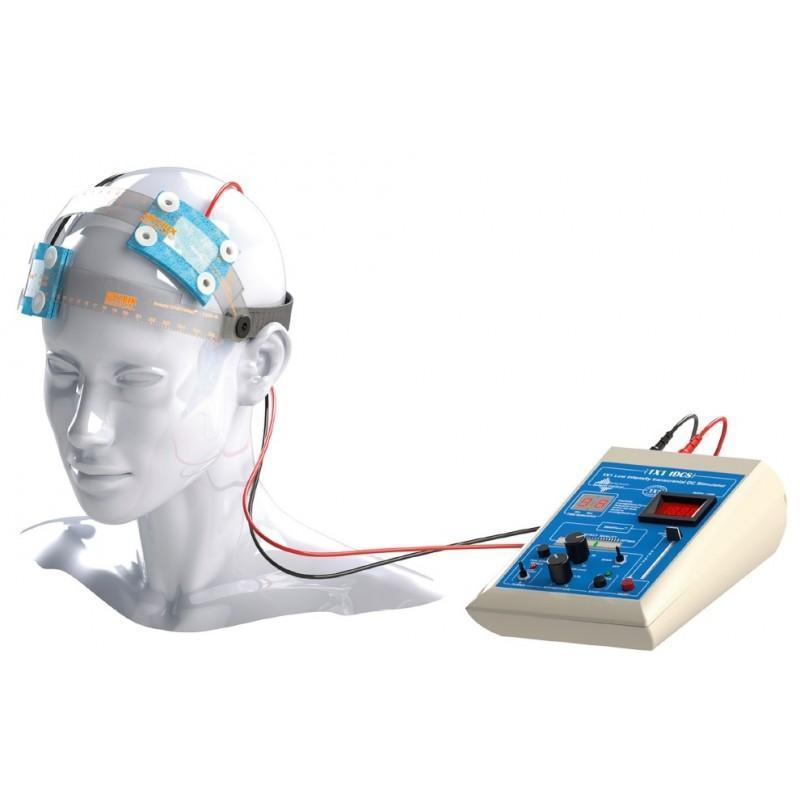Prone to forgetting things? This article is for you!
Prone to forgetting things? This article is for you!
Research has shown that TDCS - Transcranial Direct Current Stimulation - is effective in stroke recovery, depression, migraines, and neurodegeneration. There are currently 224 clinical trials involving this technology worldwide. Study after study, however, increased the evidence of tDCS's ability to improve cognitive functions.
**How does it work? **
Electric current affects brain neurons through the application of electrical current. tDCS alters random electrical activity in the nerve. A positive electrical charge is applied to the brain's affected area by two electrodes placed on the forehead, called the anodes.
Application areas
It is used in the treatment of depression, acute and chronic pain, dementia, stroke rehabilitation, substance abuse and some other neurological and psychiatric diseases.
Advantages
tDCS has three advantages:
- As an alternative to drug treatment, it can be used in certain situations, such as when pregnant women, those who are breastfeeding, and those who cannot tolerate the drug.
- Pain management, poststroke rehabilitation and depression are treated with it as an adjunct to prescription medications. When taken in conjunction with medication, the outcome is enhanced.
- There are no drug interactions and no harm to the body with this short-term treatment.
Procedure
Prior to the first session, blood pressure and pulse are measured. Then, all necessary paperwork is issued and signed. Patient and family members are informed and receive written permission for treatment before it begins.
If you have a pacemaker, metal implants in your head or a tube in your ear, you shouldn't use this product. However, it can be used by women who are pregnant and lactating. An additional question about these conditions is asked prior to launching the application. The risk of epileptic seizures can be mitigated using an ambu device, although it is rare.
Alcohol cotton is used to wipe the electrode placement sites. A new application area is determined if there is a wound in the area.
In most cases, treatments last between 20-60 minutes and are administered daily. During application, some experience mild tingling discomfort, which usually subsides. You will not feel any pain. In order to monitor the treatment's effectiveness, the doctor evaluates the results after each session.
Side effects
- slight tingling sensation (75%)
- slight itching at the site of application (30%)
- fatigue (35%)
- headache (0.8)
Action
Cognitive abilities are temporarily enhanced by TDCS. When applied to the frontal region of the brain, this effect is most pronounced. The ability to solve problems, learn, and communicate well is positively impacted. During a single session, these effects are brief, but over time, they become more powerful and longer-lasting.
The research on transcranial direct current stimulation has overwhelmingly shown that it is effective as an adjunct therapy, particularly when treating depression.
The long-term and ethical implications of tDCS remain unclear, however, because it is still an experimental technology. When used, it has to be followed very carefully according to all the rules of application.
Natural methods to improve memory
Consume less added sugar
Addicted to sugar consumption has been linked to health problems, including cognitive decline.Take an omega-3 supplement
Omega-3 fatty acids found in fish oil are eicosapentaenoic acid (EPA) and docosaghexaenoic acid (DHA). They also serve to lower overall health risks by reducing heart disease risks, inflammation, stress and anxiety, and preventing mental decline.Meditation is an important part of life
Meditation can have a positive impact on your health in many ways. Stress and pain are reduced, blood pressure is lowered and memory is improved through it.Make sure you maintain a healthy weight
Maintaining a healthy weight is key to mental and physical well-being.Get Enough Sleep
It has long been known that poor sleep contributes to sluggish memory. Memory consolidation occurs during sleep, during which short-term memories are strengthened and transformed into long-term ones.Reduce your alcohol consumption
You can harm your health negatively by too much drinking of alcoholic beverages and your memory can also be diminished.Train Your Brain
By playing brain games you can improve your memory and boost your cognitive skills. There are many games and smartphone apps for strengthening your memory. Crossword puzzles, word-recall games, Tetris, and many more are all among the options.Reduce your intake of refined carbohydrates
A large amount of refined carbohydrates can negatively affect your memory, including cake, cereal, cookies, white rice, and white bread.Check Your Vitamin D Levels
The body relies on vitamin D for a number of vital functions. Vitamin D deficiency has been linked to diminished cognitive function.Make it a point to exercise more
Physical and mental health are both improved by exercise.Consume anti-inflammatory foods
It is possible to boost your memory by consuming anti-inflammatory foods. Antioxidants reduce the effects of oxidative stress caused by free radicals in the body. Fruits, vegetables and teas are great sources of antioxidants.Cocoa May Help You Slim Down
Flavonoids, typically found in chocolate, are powerful antioxidants that offer nutritional benefits. The brain appears to benefit particularly from flavonoids. Specifically, they could stimulate vessel and neuron growth in parts of the brain related to memory.
Be the first to post a message!
